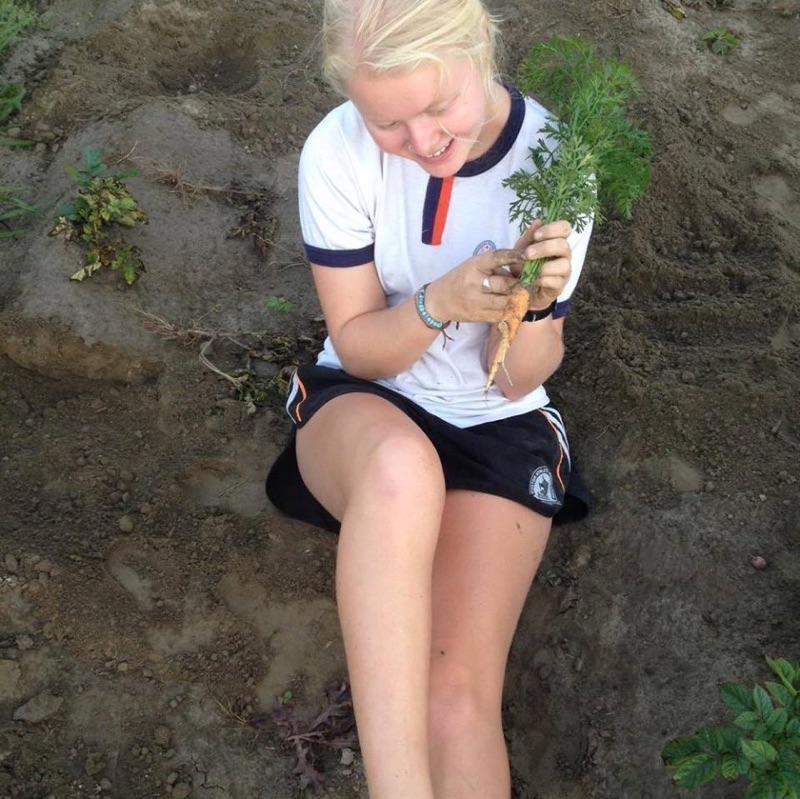Meet Nell! She is an Environmental Studies major with a concentration in Food, Land and Community, and a minor in Ecological Agriculture. Nell is one of our two Field Interns and her work involves reaching out to migrant farmworkers, talking about which fruits, veggies, and herbs they want to grow, seed sourcing and delivery, data collection, early planting in greenhouses, and helping out with garden design and planting. The community outreach aspect, especially with such an isolated and threatened community in Vermont, is mainly what drew Nell to Huertas. She says that “being able to provide fresh, culturally familiar food, and the opportunity to have a personal garden is an incredible opportunity to improve someone’s livelihood. Sure, the gardens may not fix some major problems or give food for a year, but they are a small way to make someone’s life a little more colorful. Food means different things to different people, but gardens give the opportunity for people to define a small part of food for themselves.” More than anything, Nell hopes she and the Huertas team can provide a distraction, a carrot, a fun day in the garden, or whatever else fresh food may mean to each person. She also hopes to improve her cross cultural communication skills because she says “it’s something [she’s] never been challenged with.” Though it’s hard to visualize the gardens at each household when there’s still snow on the ground, she cannot wait to see the hundreds of veggies, fruits, and herbs sprout—many of which she hasn’t planted, seen, or eaten before!
¡Conoce a Nell! En UVM ella estudia Agricultura Ecológica y Estudios Ambientales con una concentración en Alimentos, Tierra y Comunidad. Nell es una de las dos Ayudantes de Campo y su trabajo incluye coordinar directamente con los migrantes, decidir que frutas, verduras y hierbas quieren sembrar, recaudar y distribuir semillas, recopilar datos, ayudar con el diseño de las huertas y el proceso de sembrar. El aspecto comunitario de Huertas fue lo que más le llamo la atención, especialmente por el enfoque en una comunidad en Vermont sumamente aislada y amenazada. Dice que “poder proporcionar una manera de obtener comida fresca que es culturalmente familiar es una oportunidad increíble para mejorar la calidad de vida de alguien. Claro, las huertas no van a solucionar los problemas más grandes ni proporcionar alimentos por un año entero, pero son una manera pequeña de hacerle la vida un poco más colorida a alguien. La comida significa algo diferente para todos pero las huertas proporcionan una oportunidad para que cada quien defina lo que significa para ellos(as).” Más que nada, Nell espera que, junto con el equipo de Huertas, pueda proporcionar una distracción, una zanahoria, una actividad divertida o cualquier otro motivo por tener una huerta. También quiere mejorar sus habilidades de comunicación transcultural porque es algo que nunca ha puesto en práctica. Aunque sea difícil de imaginar cómo se van a ver las huertas porque la tierra sigue cubierta por nieve, Nell no aguanta las ganas de ver brotar cientos de verduras, frutas y hierbas (¡muchas de ellas nunca las ha visto, ni sembrado, ni comido!)
